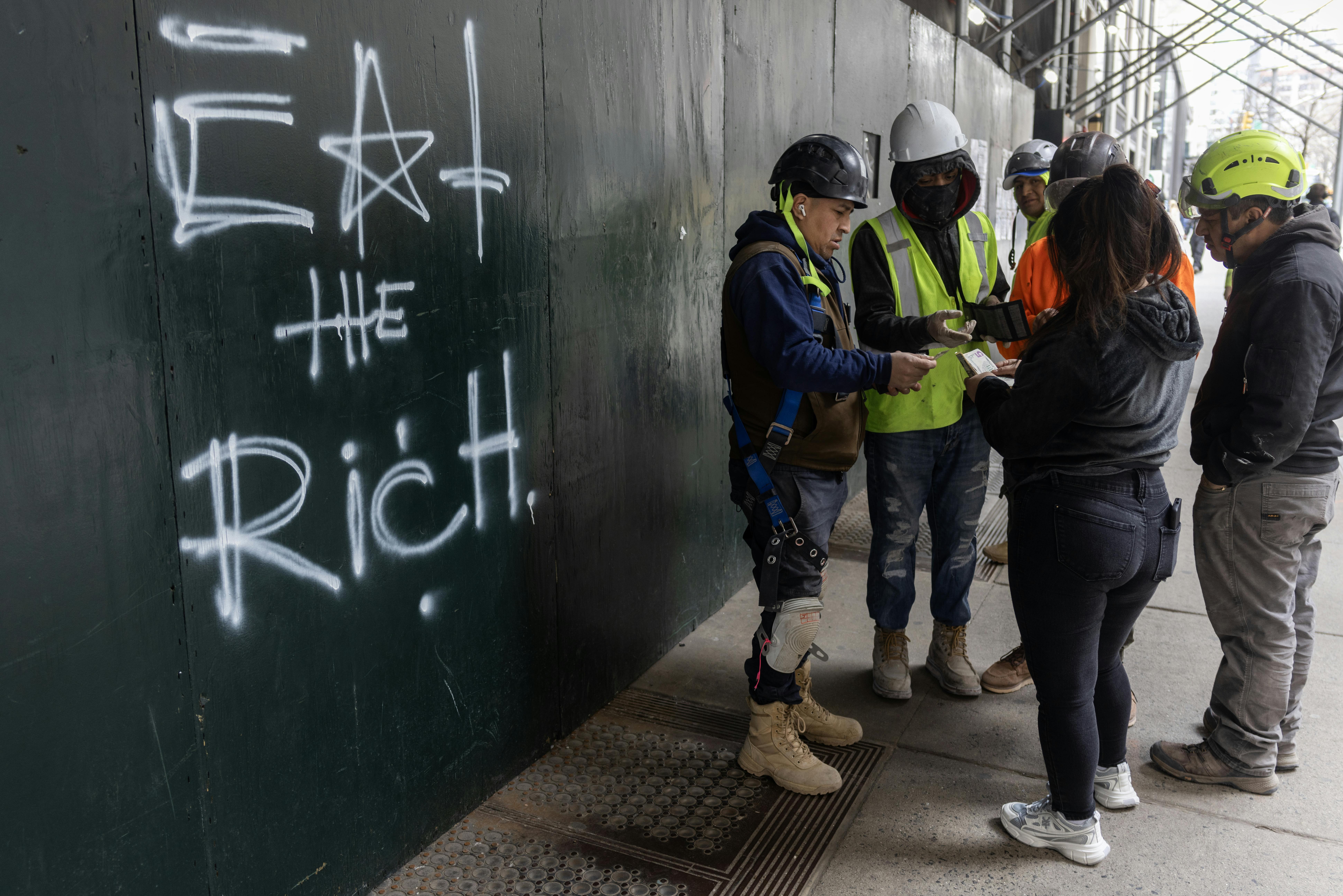SUPPLY-SIDE CHIC: The Gaping Hole in the Center of the Abundance Agenda
 The new YIMBYism misses something critical: All the supply in the world won’t help if economic inequality continues to grow.
https://newrepublic.com/article/193346/economic-inequality-keynes-abundance-agenda
https://archive.ph/8LWxb
The new YIMBYism misses something critical: All the supply in the world won’t help if economic inequality continues to grow.
https://newrepublic.com/article/193346/economic-inequality-keynes-abundance-agenda
https://archive.ph/8LWxb
 Construction workers settle their lunch bills next to graffiti scrawled on the wall of a construction site reading "eat the rich" in New York City.
Construction workers settle their lunch bills next to graffiti scrawled on the wall of a construction site reading "eat the rich" in New York City.
America has a housing affordability crisis. Ezra Klein and Derek Thompson’s
Abundance, Yoni Appelbaum’s
Stuck, and Mark Dunkelman’s
Why Nothing Works argue to varying degrees that land-use restrictions, mostly at the local level, are what created this problem and that easing them will solve it. Build more housing, and it will become more affordable.
Last week
I argued that there are sound reasons for local communities to exert some control over their neighborhoods—reasons that the new supply-side liberals are reluctant to acknowledge. Protecting the environment, scaling building size to limit opportunities for crime, and preserving architecture of historical significance are all legitimate goals. People should have some power to make their communities livable, because if your community doesn’t do that, it’s doubtful outside forces will—either commercial or governmental.
I don’t disagree that these defensible goals often act as a smokescreen for indefensible goals—such as the exclusion of lower-income people, or the elimination of racial or ethnic diversity. It happens often enough that supply-side liberals are right to call for greater regulatory flexibility, mostly at the local level, to make it easier to build stuff, and not just housing. We need to make it easier to build all sorts of things, including (to cite a central example in Abundance) a bullet train from Los Angeles to San Francisco.
My main problem with supply-side liberalism isn’t what it contains, but what it omits. To address the housing shortage, to build vital infrastructure, and to address all sorts of other problems, judiciously targeted deregulation will be nowhere near sufficient. We also need to address the demand-side problem of distribution.
snip

